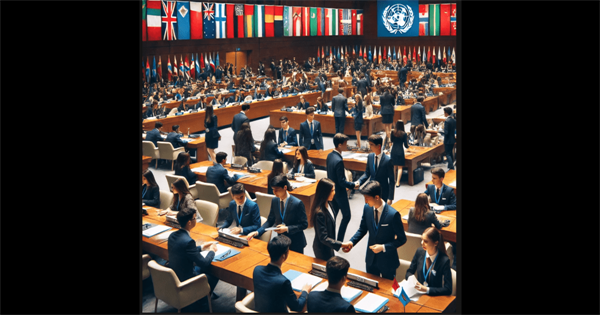
Mastering Diplomacy Negotiation and Alliance-Building Strategies in Model UN
One of the best ways through which students could obtain significant practice in diplomacy is via the Model United Nations. In MUN, success is defined more often than not by a delegate’s ability to communicate, but to sell, and to be a team player.
This article assists the delegates in handling the complex nature of international relations by studying basic negotiating tactics and diplomacy strategies in MUN.
Recognising the Scene
Before joining a conversation or forming an alliance, one must understand the committee ’s political climate. Today, this means studying the position of your nation, friends and foes. To be able to seize other delegates’ fine points, one has to listen closely in casual talk and formal addressing. Strategic planning also involves the identification of ‘key players’ who are hugely influential on your committee.
Skilled Negotiators
Much of the bargaining strength comes from preparation. Explain straightforwardly what a country sees about current events and design powerful arguments to support the position. Prepare to hear counterarguments and have counterarguments for your standpoint in negotiation.
Often, the first step when people treat their opponents right is arriving at some understanding. When approaching other delegates, especially those with whom there is an apparent conflict of interest, seek out the things that both of you agree on. In order to gain the votes on matters of concern, be prepared to compromise on other issues that may not be of major significance.
Good negotiation also depends much on the process of the listening skill. You should also ask question, show concern and embrace the worries and concerns of the other delegates. Apart from being useful in developing rapport, this approach also assists you in understanding them better from their perspective.
Communications in MUN in Indian schools need to be persuasive. Arguments on facts and figures are effective but don’t overlook the power of empathy—particularly when pointing to the losses of human lives to some issues. In order to back your points of view, maintain gaze and adopt confident posture.
Flexibility and creativity would be highly valuable for negotiators. Be creative in search of reasonable solutions and listen to other people when they offer solutions.
Since MUN in Indian schools are rather time-constrained, time management is strictly obligatory. Set goals for each of the negotiation sessions, prioritise the issues, and understand when to advance to seeking solutions and when to let the conversation be more open.
Creating Powerful Alliances
Search for nations that are like-minded or have similar stances, accounting for traditional and nontraditional coalitions. Do not take your attention away from the less significant nations, as they may be rather useful for vital votes.
Broach politics as a simple conversation starter in corridors, during tea or lunch breaks, in association corridors or any social door-opener. Proactively approach other delegates and start conversations about shared goals and collaboration.
Managing alliances and maintaining relationships of trust constitute important factors that have to do with the proper formation of coalitions. Deliver on promises and ensure that your word of mouth is trusted. Take genuine interest in the comments of the other participants in the meeting, and stay in touch with the other participants throughout.
Develop a coalition strategy when you have an alliance. Prepare a vision and goals with your allies; define responsibilities within the alliance; and finally, take responsibility in public debate and working papers.
There is a constant process of managing the dynamics of alliances. Whenever there is a conflict, quickly address it and be strategic about how to handle the situation.
In order to maintain the coalition's cohesion, one has to be willing to let go of some power. Another important strategy is to continually analyse the effectiveness of the alliance and revamp when necessary.
At last, always seek chances to grow your network. Mediate to mend divisions between several factions and attract fresh members into your alliance. This not only supports more thorough and generally agreed-upon resolutions but also fortifies your position.
In Model United Nations, learning the art of negotiation and alliance-building calls for a mix of careful preparation, good communication, strategic thinking, and people skills. These techniques can help delegates improve their capacity to affect results, foster unanimity, and finally succeed in the ever-changing MUN in Indian schools.
Related Blogs
-
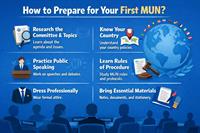
19-Jan-2026 How to Prepare for Your First MUN?
-
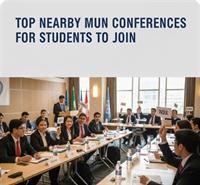
24-Dec-2025 Top Nearby MUN Conferences for Students to Join
-
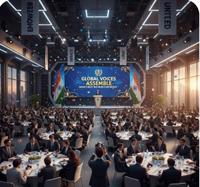
27-Nov-2025 Global Voices Assemble India Next Big MUN Conference
-
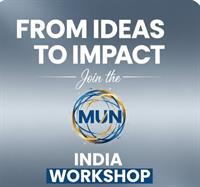
13-Nov-2025 From Ideas to Impact Join the MUN India Workshop
-
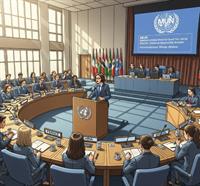
14-Aug-2025 What Is A Conference In MUN?
-
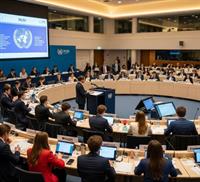
07-Aug-2025 What Does the MUN Do?
-
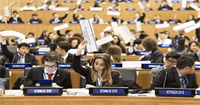
03-Jul-2025 Ways to Research for a Model UN Position Paper
-
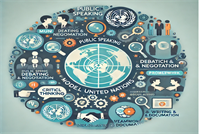
28-Mar-2025 What skills do you gain from Model United Nations?
